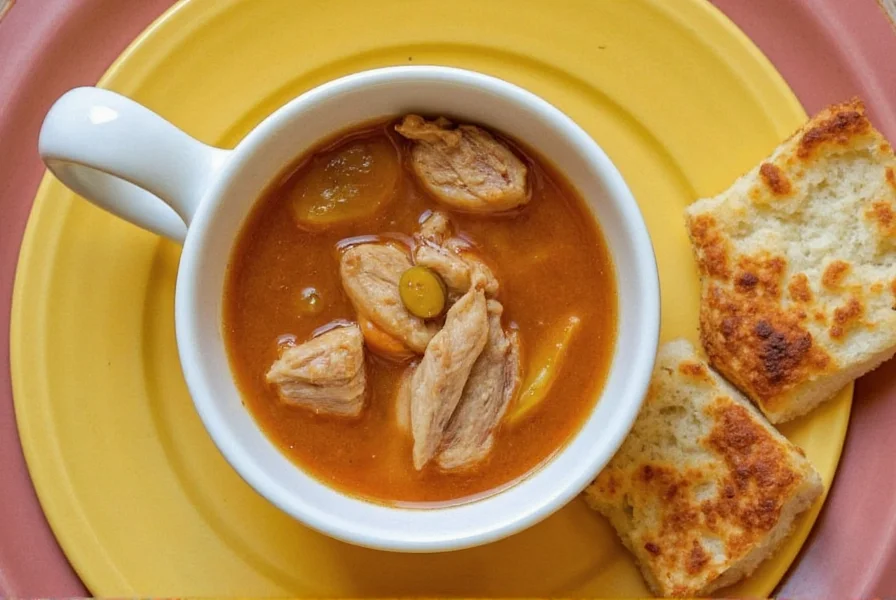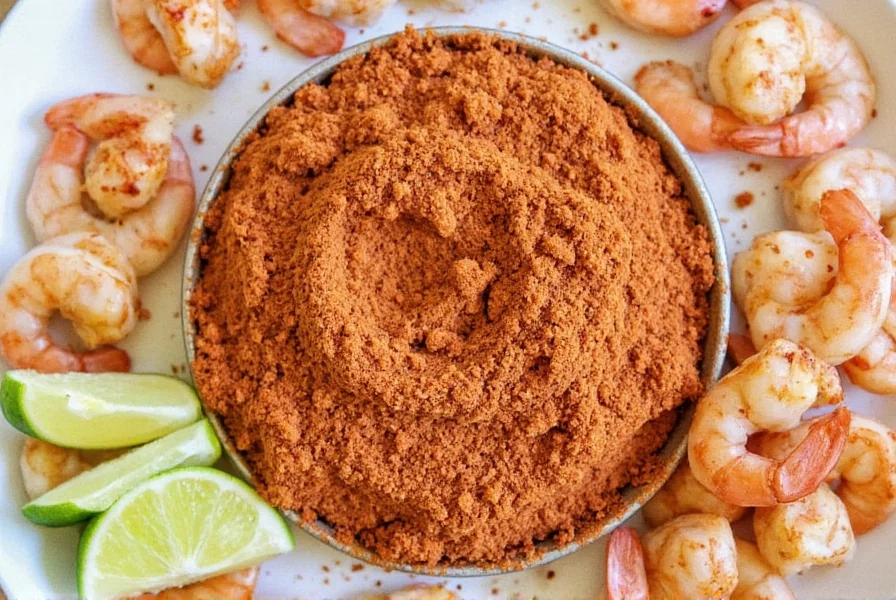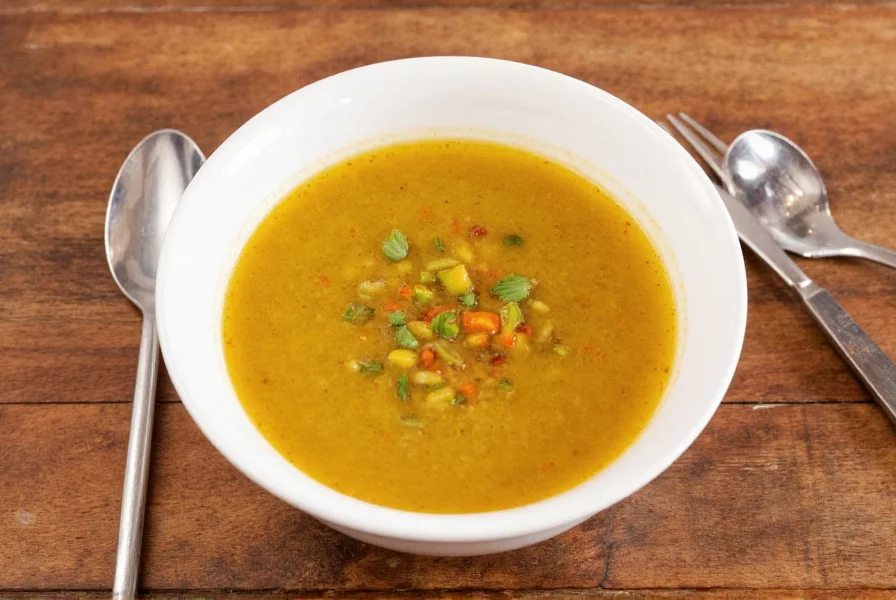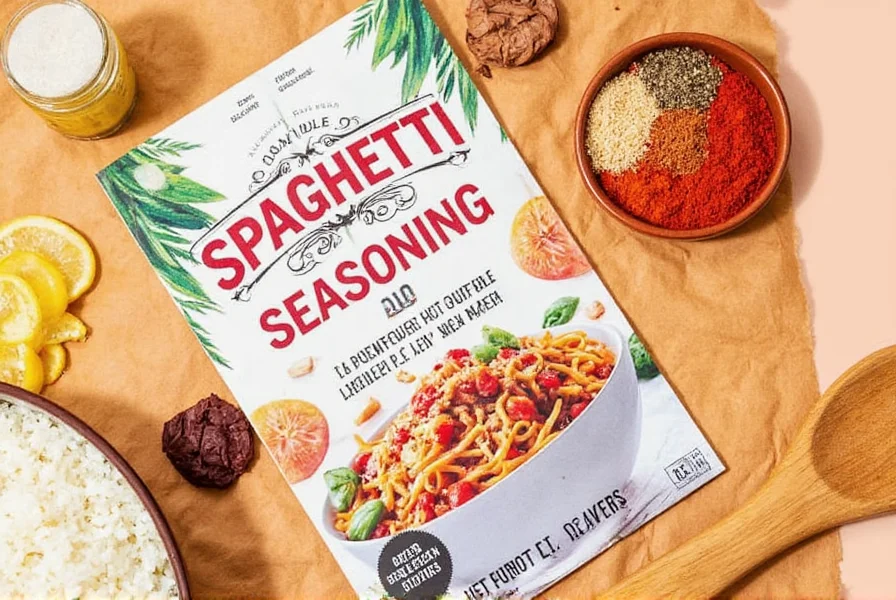Table of Contents
What is Chicken Soup Spice?
Chicken soup spice is a specialized blend of herbs and spices specifically formulated to enhance the flavor of chicken soup. It typically includes ingredients like garlic, onion, thyme, bay leaves, and black pepper, among others. Unlike generic seasoning mixes, chicken soup spice is designed to complement the delicate balance of flavors found in chicken broth, adding depth and warmth without overpowering the natural taste of the soup.

Spice Basics You Need to Know
Chicken soup spice is a carefully curated mix of ingredients that brings out the best in your chicken soup. The standard composition includes:
- Garlic and Onion Powder: Provide savory depth and umami flavor
- Thyme and Bay Leaves: Add herbal complexity and aromatic notes
- Black Pepper: Offers subtle heat and sharpness
- Additional Common Ingredients: May include parsley, celery seed, paprika, or cumin for varied flavor profiles
Unlike commercial broth bases, chicken soup spice contains no added salt or fats, focusing solely on flavor enhancement. This makes it versatile for various dietary needs including low-sodium or gluten-free diets.

Practical Tips for Using Chicken Soup Spice
Here are evidence-based techniques for maximizing the flavor potential of chicken soup spice:
- Proper Timing: Add chicken soup spice at the beginning of cooking to allow flavors to fully develop and integrate with the broth. Heat activates the essential oils in the spices.
- Measurement Guidelines: Start with 1 teaspoon per quart of liquid. Taste after simmering for 15 minutes and adjust as needed. Remember that flavors concentrate as liquid reduces.
- Pairing Recommendations: Works exceptionally well with classic soup ingredients like carrots, celery, potatoes, and fresh herbs. For enhanced umami, combine with a small amount of soy sauce or miso paste.
- Storage Best Practices: Keep in an airtight container away from light, heat, and moisture. Properly stored, chicken soup spice maintains peak flavor for 12-18 months.

The Ultimate Buying Guide for Chicken Soup Spice
When selecting chicken soup spice, consider these critical factors based on industry standards:
| Feature | Description |
|---|---|
| Ingredients | Look for natural, high-quality ingredients. Avoid products with artificial additives, fillers, or anti-caking agents like silicon dioxide. |
| Flavor Profile | Choose a blend that matches your taste preferences. Traditional blends focus on thyme and bay leaves, while modern variations may include cumin, paprika, or smoked ingredients for depth. |
| Packaging | Opt for airtight containers or vacuum-sealed packages with resealable features. Glass jars with tight lids preserve freshness better than plastic bags. |
| Brand Reputation | Research brands known for quality and consistency. Look for certifications like USDA Organic or Non-GMO Project Verified if these are important to you. |
Top Products to Consider
- Herb & Spice Co. Chicken Soup Seasoning: A classic blend with garlic, onion, thyme, and bay leaf. Ideal for traditional chicken soups with authentic flavor.
- Spice Fusion Chicken Broth Mix: Offers a bolder flavor with hints of cumin and smoked paprika. Great for those who love a little heat and complexity.
- Natural Roots Chicken Soup Seasoning: Made with organic ingredients and no preservatives. Perfect for health-conscious cooks seeking clean-label options.
When choosing a chicken soup spice, consider your personal taste preferences, the type of soup you're making, and any dietary restrictions. For example, if you're looking for a vegan or gluten-free option, make sure the product meets those criteria.

Frequently Asked Questions About Chicken Soup Spice
What is chicken soup spice made of?
Chicken soup spice typically contains a blend of garlic, onion, thyme, bay leaves, and black pepper. Some variations may include additional ingredients like cumin, paprika, parsley, or celery seed for more complex flavor profiles. The exact composition varies by brand, but the goal is always to enhance the natural flavors of chicken and vegetables in soup without overpowering them.
How much chicken soup spice should I use in my recipe?
As a general guideline, start with 1 teaspoon of chicken soup spice per quart of broth. You can always add more to taste after the soup has simmered for a while. Remember that flavors concentrate as liquid reduces, so it's better to start with less and gradually increase until you achieve your desired flavor profile.
Can I make my own chicken soup spice blend at home?
Absolutely! Making your own blend allows you to customize the flavors to your preference. A basic homemade version would include: 2 tbsp dried parsley, 1 tbsp garlic powder, 1 tbsp onion powder, 2 tsp dried thyme, 2 tsp dried basil, 1 tsp black pepper, and 1 tsp celery seed. Mix these together and store in an airtight container away from light.
What's the difference between chicken soup spice and chicken broth base?
Chicken soup spice is primarily a seasoning blend of herbs and spices designed to enhance flavor. Chicken broth base or soup base typically contains salt, fats, and dehydrated chicken or meat stocks in addition to seasonings. Soup spice adds flavor complexity without significantly changing the liquid content, while broth base often needs to be dissolved in water and provides a more complete "base" for your soup.
When should I add chicken soup spice during cooking?
For maximum flavor development, add chicken soup spice early in the cooking process. This allows the spices to bloom in the liquid and distribute their flavors evenly throughout the soup. If using fresh herbs in addition to the spice blend, add delicate herbs like parsley toward the end of cooking to preserve their fresh flavor.
Can chicken soup spice be used for dishes other than soup?
Definitely! Chicken soup spice works wonderfully as a general seasoning for roasted chicken, turkey, or other poultry. It's also excellent for seasoning vegetables before roasting, adding flavor to mashed potatoes, or enhancing the taste of casseroles and stuffing. Its versatile flavor profile makes it useful in many savory dishes beyond just soup.
How long does chicken soup spice stay fresh?
Properly stored in an airtight container away from heat and sunlight, chicken soup spice typically maintains its peak flavor for 1-2 years. Ground spices gradually lose potency over time. You'll know it's past its prime when the aroma becomes faint and the flavor seems weak. For best results, buy in smaller quantities that you can use within 6-12 months.
Is chicken soup spice gluten-free?
Most basic chicken soup spice blends are naturally gluten-free, as they consist of herbs and spices. However, some commercial blends may contain anti-caking agents or be processed in facilities that handle wheat products. If you have celiac disease or gluten sensitivity, look for products specifically labeled "gluten-free" and check the ingredient list carefully.
Conclusion: Elevate Your Chicken Soup with the Right Spice
In conclusion, chicken soup spice is more than just a seasoning—it's a tool that can elevate your cooking and bring new dimensions of flavor to your meals. Whether you're a professional chef or a home cook, understanding how to use and choose the right chicken soup spice can make all the difference in your culinary creations.
By following the tips outlined above and exploring the various products available, you'll be well on your way to crafting the perfect chicken soup every time. So next time you're in the kitchen, don't forget to reach for that jar of chicken soup spice and let it do the magic.










 浙公网安备
33010002000092号
浙公网安备
33010002000092号 浙B2-20120091-4
浙B2-20120091-4